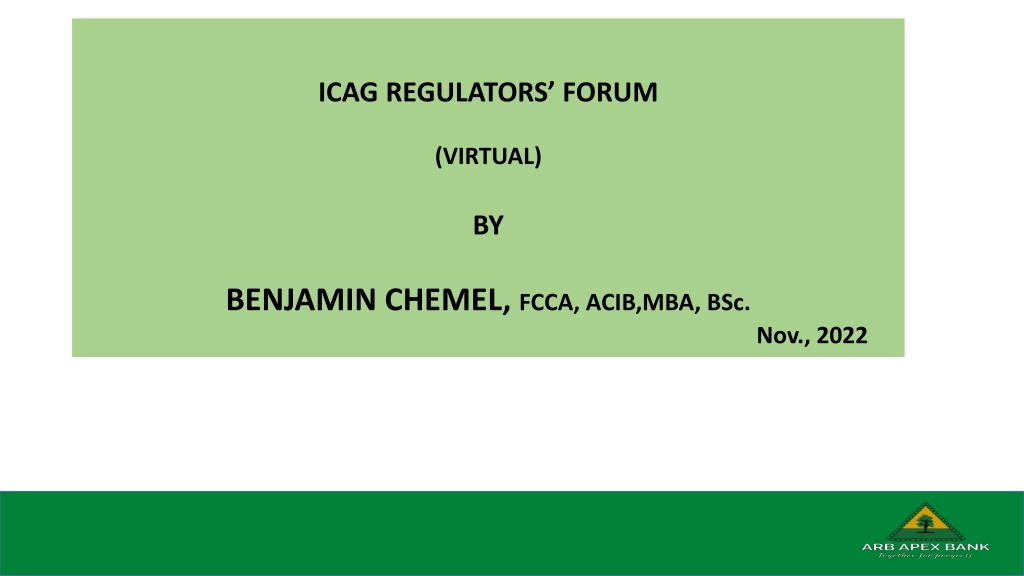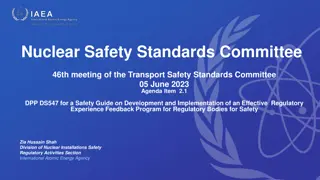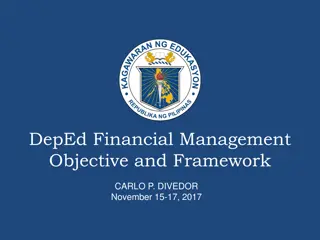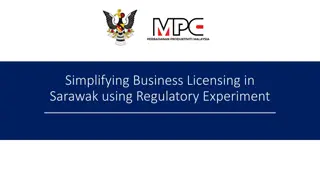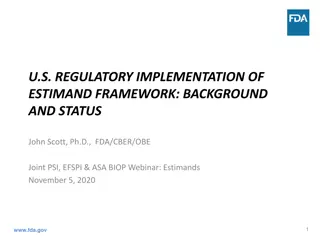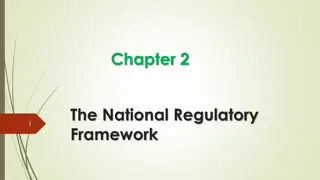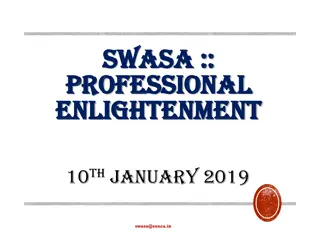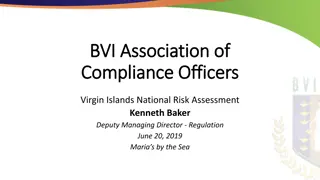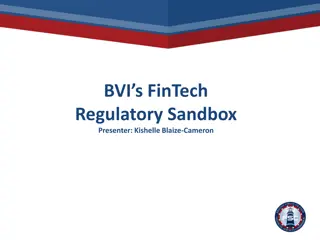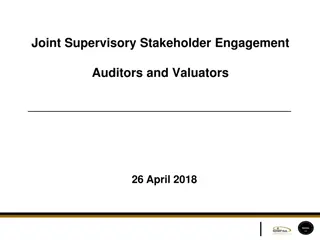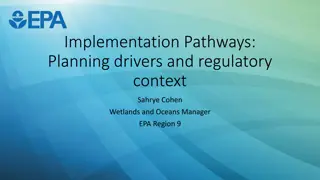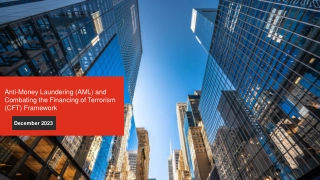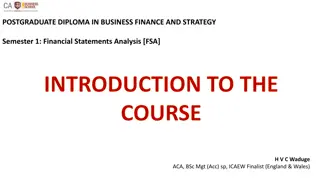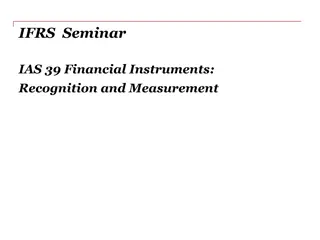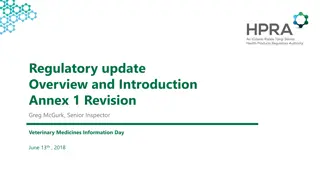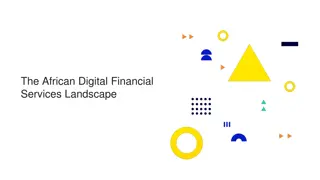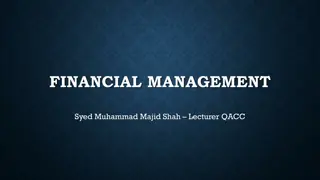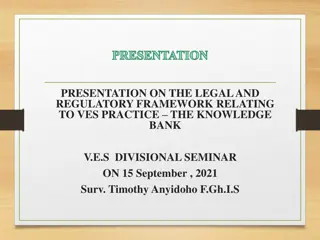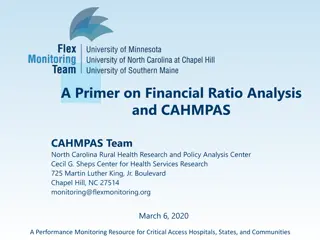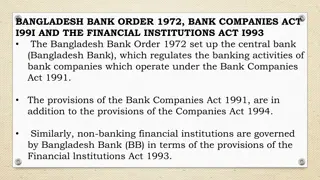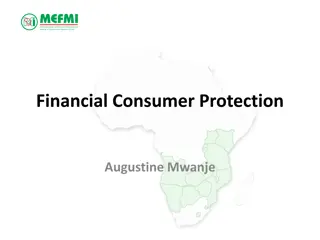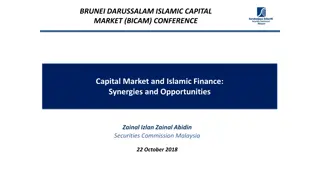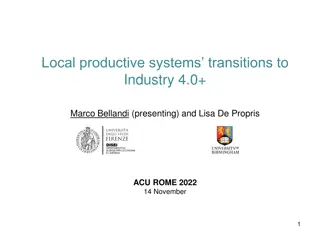Key Insights into Ghana's Financial Industry Regulatory Framework
Delve into the dynamics of Ghana's financial industry regulatory framework through a comprehensive discussion on the role of regulators, challenges faced by Rural and Community Banks (RCBs), and the institutional structure of the ARB Apex Bank. Learn about the impact of effective regulation on economic development, capital formation, and confidence in the financial system.
Download Presentation

Please find below an Image/Link to download the presentation.
The content on the website is provided AS IS for your information and personal use only. It may not be sold, licensed, or shared on other websites without obtaining consent from the author. Download presentation by click this link. If you encounter any issues during the download, it is possible that the publisher has removed the file from their server.
E N D
Presentation Transcript
ICAG REGULATORS FORUM (VIRTUAL) BY BENJAMIN CHEMEL, FCCA, ACIB,MBA, BSc. Nov., 2022
Introduction A well-structured regulatory regime contributes to the efficiency and stability of the financial system. Influence on a country's economic development Level of capital formation, Efficiency in the allocation of capital between competing claims, Confidence to end-users (depositors)
Financial Industry in Ghana Capital Market Banking Insurance Pensions Bank of Ghana SEC NIC NPRA
Banking Industry Banking Universal Banks Savings and Loans MFIs Forex bureau RCBs Bank of Ghana ARB Apex Bank RCBs
Source of ARB Apex Banks Mandate In accordance with the Bank of Ghana Act, 2002, (Act 612), the Bank of Ghana may appoint an authorised agent to carry out specified activities of a particular tier or category or class of specialised deposit-taking institutions on behalf of the Bank of Ghana. For the purpose of this section, authorised agent includes an apex body, network, industrial association, self-regulatory organisation or any other person recongnised by the Bank of Ghana- Section 2(5 & 6) of BSDI Act, 2016 (Act 930).
Inability to cover all RCBs in a financial year Corporate Governance Issues at the RCBs: Inability to attract qualified people Unwillingness of directors to retire Excessive involvement in operations Lack of Right to Sanction Skills and Remuneration: Attracting qualified staff audit, risk and compliance by one person Resources Constraints: Inability to implement directives and standards e.g. IFRS,CRD, Cyber
Institutional structure (set-up of the ARB Apex Bank) A banker and a supervisor for RCBs RCBs are owners and customer Responsibility without authority
Addressing the Governance Issues Tenure of office of directors has been limited to 9 years (3yrs X3 terms) Tenure of office of CEOs has been limited to 12 years (4yrs X3 term) Clear separation of CEO and Chairman s role Introduction of qualification for directors
Structural Review The revision of the L.I. 1825 is being reviewed Bank of Ghana to cede of more powers to the ARB Apex Bank ARB Apex Bank should have powers to sanction remove errant Board and/or Management of RCBs. Penalties from RCBs for various breaches.
Training and Capacity Building Continue to deliver training to RCBs staff and directors focusing on new trends and changing governance environment . Collaboration with ARB and NBC to train and certify all directors Employing more skilled personnel Increasing the staff strength of the Apex Bank to cover more RCBs a year (starting with coverage in 2 years) Giving cutting-edge training and development to our staff
THANK YOU THANK YOU
